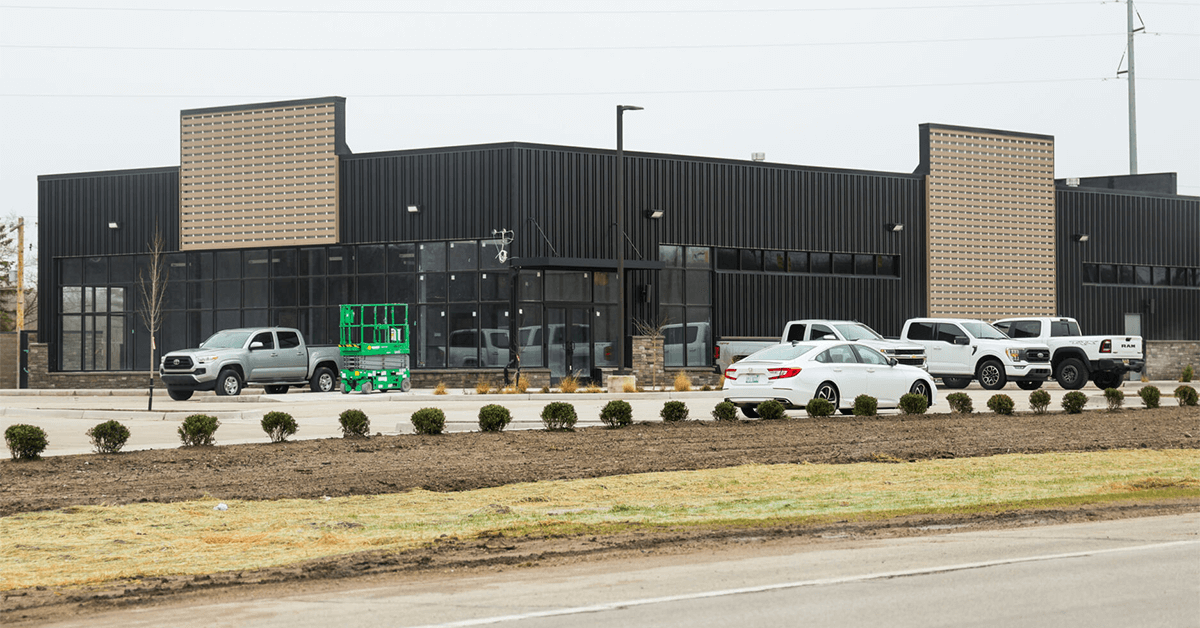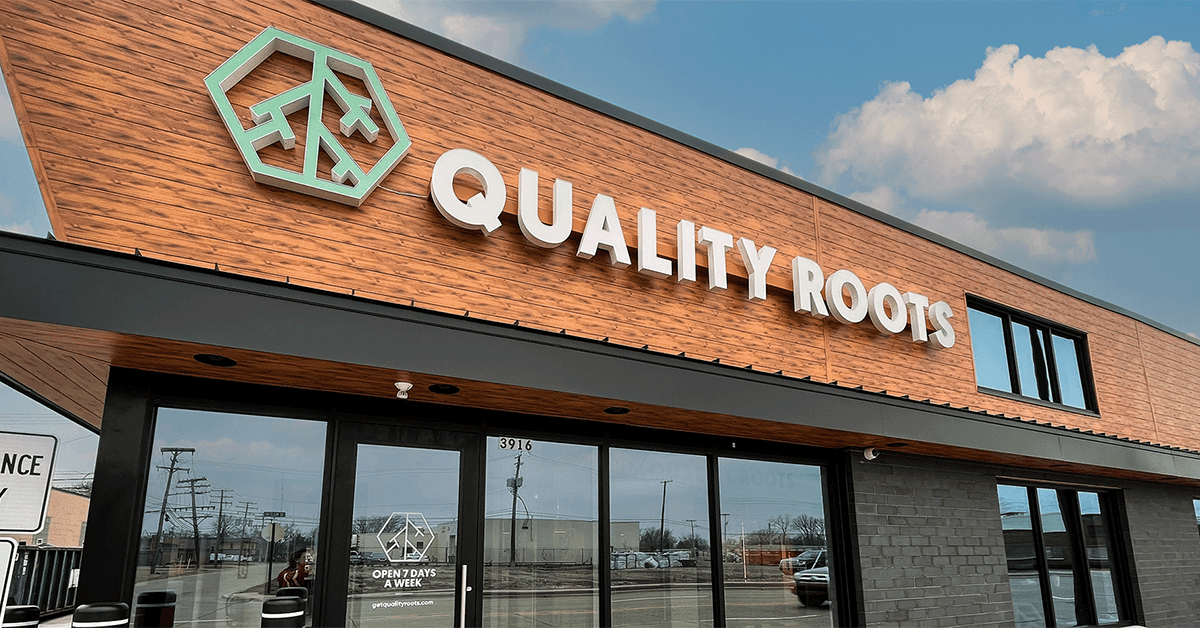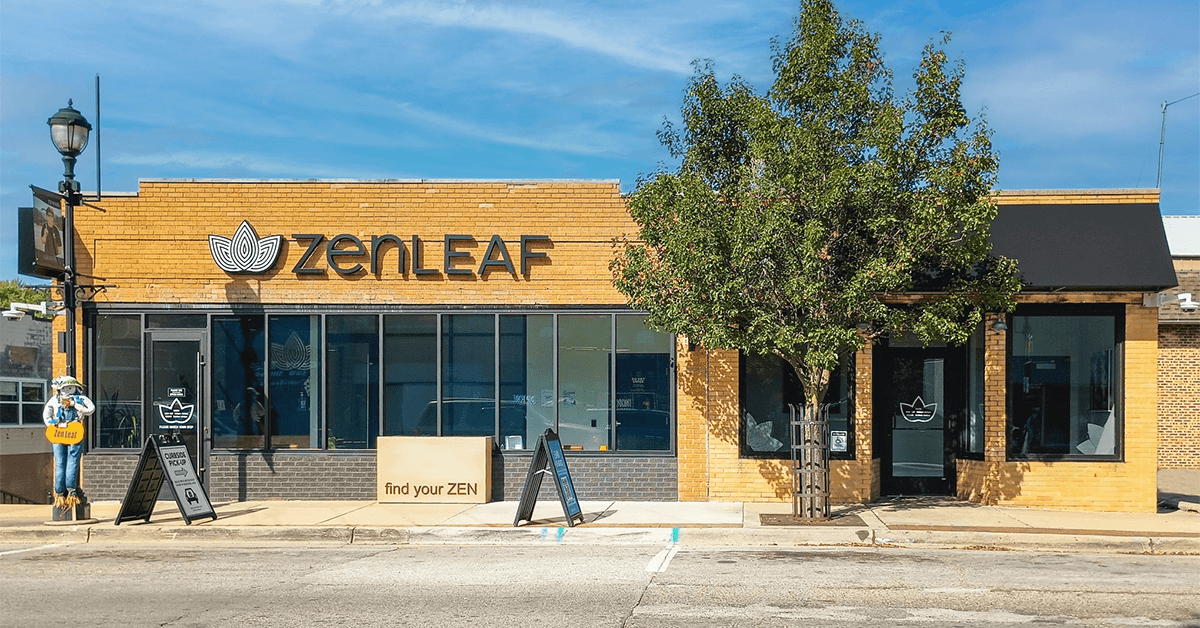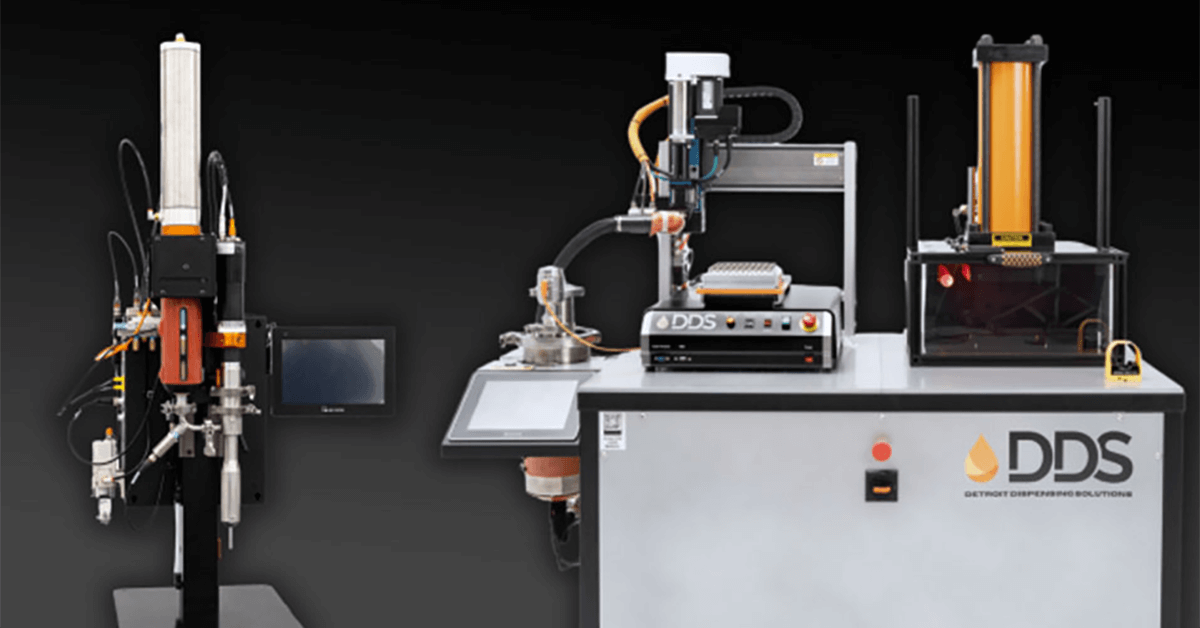Safe Harbor Financial Boosts Michigan Cannabis Operator with $4.6 Million Credit Facility

Safe Harbor Financial, Inc. (NASDAQ: SHFS), known for its leading role in providing banking, payment, and financial services to the regulated cannabis industry, has recently facilitated a $4.6 million credit facility for a Michigan-based cannabis operator. This financial arrangement is secured against a portfolio of four dispensaries and is aimed at supporting the operator's growth initiatives within the state, particularly in enhancing its cultivation and retail sectors.
This move adds to Safe Harbor's impressive loan book, which now boasts over $60 million in outstanding loans and commitments. This marks a significant growth from its previous figures, underlining the company's rapid expansion and the diversity of its loan portfolio. This portfolio includes 25 cannabis real estate assets spread across 10 states, encompassing every segment of the cannabis industry's value chain.
Dan Roda, Safe Harbor Financial's Chief Operating Officer and Executive Vice President, emphasized the company's pivotal role in addressing the distinct and developing financial needs of cannabis operators nationwide. By offering competitive rates and financial structures, Safe Harbor has not only enhanced its customer acquisition strategies but also introduced new revenue streams beyond its traditional deposit-related fees. This strategic expansion of its credit offerings underlines Safe Harbor's commitment to diversify its revenue base and strengthen its market position through increased loan origination activities.
Roda's statement reflects the company's successful trajectory from managing a loan book of just under $20 million to surpassing $60 million within a year. This growth underscores Safe Harbor's strategic efforts to scale its operations and further solidify its foothold in the financial services sector catering to the cannabis industry.
For those interested in the financial side of the cannabis industry, an exclusive opportunity awaits. By signing up through our Robinhood referral link, you might secure a free portion of Safe Harbor Financial stock, making you a part of the groundbreaking journey of companies like Safe Harbor Financial in the cannabis sector. Explore this chance and potentially start your investment journey in the burgeoning cannabis market.
Cannabis Dispensaries Flourish in Southwest Michigan, Attracting Chicago and Indiana Residents

Residents of Northwest Indiana and the greater Chicagoland area have long been drawn to Southwest Michigan for its picturesque beaches, sprawling sand dunes, charming wineries, craft breweries, and inviting farm stands. However, Harbor Country, known for its summer retreats, cozy Airbnbs, and beach relaxation, is now attracting visitors with a new recreational option: cannabis dispensaries.
Recently, The Rolling Embers, URB, and The Bloomery opened their doors close to Exit 1 on Interstate 94, marking the gateway into Michigan from Indiana. Additionally, King of Budz, a chain with existing locations in Monroe, Ferndale, and Detroit, is in the process of establishing a new store in this prime location. JARS Cannabis is expected to open its doors on U.S. 12 in New Buffalo, near the iconic "Welcome to Michigan" sign, in May. Meanwhile, Pharmhouse Wellness, known for its Grand Rapids location, plans to inaugurate a new dispensary a mile north on U.S. 12 this spring.
This burgeoning cannabis market near the Indiana border, where cannabis remains illegal, is seen as just the beginning. With 35 applications submitted for dispensary operations in New Buffalo Township, the area might soon be a hotspot for cannabis enthusiasts, despite none being located within the city limits of New Buffalo itself. This expansion into New Buffalo Township, a region celebrated for its lighthouses, marinas, and leisurely beach days, might set a new record for dispensary density in Michigan, potentially surpassing urban centers like Ann Arbor, Detroit, or Lansing if all applications are approved.
With a significant investment projected between $50 million and $100 million in the township, the economic impact of these dispensaries is notable. The potential tax revenue from these establishments could provide a continuous financial boost to the local community. In comparison, Michigan's 10% cannabis excise tax brought in $290.3 million statewide last year, illustrating the significant fiscal benefits of the legalized cannabis industry.
The introduction of dispensaries in areas like New Buffalo Township not only generates tax revenue but also creates job opportunities, contributing positively to the economy. Studies suggest that states legalizing recreational cannabis have seen modest but significant employment growth, particularly in agriculture. This growth extends to increased home prices and population, highlighting the multifaceted economic benefits of legalization.
The situation in New Buffalo Township mirrors the economic uplift seen in Monroe, Michigan, driven by recreational cannabis sales to residents from states with stricter cannabis laws. This phenomenon of cross-border commerce, spurred by differences in state laws, reflects broader trends seen in the United States, underscoring the economic incentives for legalization amidst ongoing debates about its social impact.
While research on the effects of cannabis legalization is ongoing, early findings generally point to positive economic impacts alongside a need for careful consideration of potential social costs. As the landscape of cannabis legalization continues to evolve, communities like New Buffalo Township are at the forefront of a significant shift in recreational and economic dynamics.
From California Dreams to Michigan Reality: The Expansion Journey of Muha Meds

Muhammad "Muha" Garawi, alongside his brother, launched the Muha Meds cannabis brand with a vision that extends beyond the mere sale of cannabis products. From its inception, Garawi has viewed the brand as a conduit for fostering unity and spreading messages of peace and love through the communal culture of cannabis. The foundation of Muha Meds was laid in California in 2018, amidst uncertain legal conditions for cannabis sales. Within a year, the company navigated its way into the legal marketplace, setting a precedent for growth and expansion that would later extend to Michigan's budding cannabis scene.
Muha Meds' journey into Michigan was marked by a blend of aspiration and strategy, aiming to infuse the state's market with the essence of LA's cannabis culture and lifestyle. The expansion was not just about introducing their products—ranging from edibles and vape pens to concentrates—but also about embedding the brand within the local community, contributing to and learning from Michigan's rich hospitality and culture.
Employing 300 people and securing shelf space in 150 dispensaries across Michigan, Muha Meds has made significant strides in the state. However, the journey has been interspersed with challenges, notably when the Michigan Cannabis Regulatory Agency suspended the company's license due to health and safety concerns. Despite these setbacks, Garawi emphasizes the brand's commitment to excellence and compliance, stating that the issues leading to the suspension have been thoroughly addressed and resolved. This commitment underscores the brand's dedication to maintaining high standards in product quality and safety, a testament to their resilience and determination to grow within the regulatory framework of the Michigan cannabis market.
Muha Meds' approach to business and product development is characterized by an emphasis on quality, affordability, and cultural integration. The decision to control every aspect of their manufacturing and distribution processes has allowed them to offer superior products at competitive prices, distinguishing themselves in a market that is increasingly crowded and competitive. Garawi points out the saturation in the cannabis market, where many producers prioritize cost-saving over quality and branding. In contrast, Muha Meds aims to create value by aligning their products with art, music, and fashion, thus crafting a unique identity that resonates with consumers seeking more than just a cannabis product.
The brand's expansion into Michigan was partly motivated by the state's business-friendly tax policies, which have facilitated the development of Muha Meds as an upscale modern lifestyle brand. This strategic move has enabled them to stand out by offering an innovative blend of cannabis and culture, appealing to a diverse customer base looking for products that reflect their lifestyle and values.
Muha Meds' recent introduction of a new line of 2-gram disposable vape pens highlights their ongoing innovation and commitment to providing convenient, discreet, and high-quality cannabis experiences to their customers. This addition to their product line represents the brand's adaptability and responsiveness to consumer preferences, further cementing their position in the Michigan cannabis market.
As Muha Meds continues to navigate the complexities of the cannabis industry, their story is one of resilience, innovation, and community engagement. Despite facing regulatory hurdles, the brand remains focused on its mission to bring people together through the power of cannabis, promising a future filled with growth, collaboration, and cultural exchange in Michigan and beyond.
Quality Roots Expands Michigan Presence with New Madison Heights Dispensary

Quality Roots, a cannabis operator based in Birmingham, Michigan, is on the verge of launching its eighth store within the state while simultaneously making strides into New Jersey, reflecting a strategic transition towards operating as a management service organization.
The company is set to unveil its Madison Heights dispensary by the end of this month, establishing its third outlet in Oakland County. Situated at the intersection of John R Road and East 14 Mile Road, this new retail location represents a significant investment of around $6 million by Quality Roots, according to Aric Klar, the CEO of this family-operated business.
This expansion is not just about increasing the company's footprint; it also involves a commitment to the community. As part of a community benefits agreement with Madison Heights, Quality Roots has pledged $200,000 towards the renewal of the city's "Welcome to Madison Heights" signs. This contribution aligns with the requirements of state law, which mandates that local cannabis license allocations consider community benefits as a crucial factor in their competitive selection process.
Furthering its integration into the Madison Heights area, Quality Roots plans to introduce a small-scale processing and cultivation facility on the site, mirroring the operational model of its Battle Creek location, Klar noted. This move not only enhances the company's production capabilities but also strengthens its bond with the local community by contributing to economic development and beautification projects.
Zen Leaf Buchanan Employees Vote for Union Representation, Aiming for Better Work Conditions

Employees at the Zen Leaf cannabis retail facility in Buchanan have chosen to join the United Food and Commercial Workers Local 951, marking a significant step in labor organization within the industry. The vote, which took place on March 1st, showcases a strong desire among workers for better representation and workplace protections. UFCW 951 President John Cakmakci expressed enthusiasm over the workers' decision, emphasizing the union's commitment to securing a contract that ensures competitive wages, quality healthcare, and workplace guarantees and protections for the Zen Leaf Buchanan team.
This move by the Zen Leaf Buchanan staff highlights a growing trend towards unionization in the cannabis sector, an industry often criticized for high employee turnover. A resounding 85 percent of employees at the facility expressed their support for joining the union, with plans to commence bargaining for their first contract soon. Justin McMeans, a staff member at Zen Leaf Buchanan, voiced his frustrations over exploitative work conditions and called for budtenders across Buchanan and Michigan to advocate for fairer treatment and consider unionization.
Zen Leaf, with dispensaries across 12 states and its only Michigan outlet in Buchanan, opened its doors in 2019, becoming both the city's inaugural dispensary and the first to unionize. Kelsey Rems, another employee at the Buchanan location, shared her pride in their collective action towards improving working conditions. The Buchanan team joins a growing number of cannabis workers in the U.S. and Canada who have aligned with UFCW locals, supported by the UFCW International's Cannabis Workers Rising campaign. Recent years have seen similar unionization efforts at other Zen Leaf locations, including a Connecticut dispensary that ratified the state's first union contract in February. Negotiations for the Zen Leaf Buchanan employees' contract are expected to begin soon, setting a precedent for labor rights within the cannabis industry.
Related: Ascend Cannabis Store Employees in Michigan Approve Teamsters Union Contract
From Auto Industry to Cannabis Innovator: The Story of Detroit Dispensing Solutions

In the dynamic sphere of cannabis technology, Detroit Dispensing Solutions (DDS) has emerged as a formidable innovator, revolutionizing the way concentrates are dispensed. Founded in 2020 by Chris Joseph, a seasoned professional from the automotive industry, DDS leverages Joseph's extensive experience in mechanical and electrical engineering to spearhead advancements in cannabis vaporizer dispensing technologies. The latest breakthrough from DDS, the CDS-1000 Automated Concentrate Dispensing System, exemplifies the company's commitment to pushing the boundaries of industry norms.
Chris Joseph's path to innovation was paved during his tenure in the automotive sector, where he excelled in engineering roles, from hands-on circuit board assembly to leading engineering departments. His transition into the cannabis industry was driven by a desire to address the inadequacies of existing dispensing solutions with his industrial machinery expertise. This led to the creation of DDS in the confines of his garage during the challenging times of the COVID-19 pandemic. Working closely with a licensed cannabis facility for 18 months, DDS developed the CFM-1800 Automated Cartridge Filling and Capping Machine, a machine that quickly set new standards for efficiency and reliability in high-volume vape cartridge production.
The CDS-1000, alongside its predecessor, the CFM-1800, represents DDS's response to the unique demands of the cannabis industry. Initially tailored for Michigan's market, these machines have gained widespread acceptance, now processing over 70% of vape cartridges in the state and expanding their presence nationwide. DDS's move to a larger, 25,000-square-foot facility in Troy was a calculated risk that paid off, enabling the company to scale its operations and foster a collaborative environment that blends automotive precision with cannabis expertise.
The CFM-1800 and its standalone counterpart, the CFS-1800, are celebrated for their high efficiency, capable of filling and capping 1800 1g cartridges per hour with a shot accuracy of ±1%. This operational excellence is underpinned by DDS's dedication to customer success, ensuring the longevity and reliability of their systems through a modular design philosophy that facilitates quick parts replacement to minimize downtime.
With the introduction of the CDS-1000 at MJBizCon, DDS has once again set itself apart by offering the first and only automated system designed for cannabis concentrate dispensing. This innovative system addresses key industry challenges such as cost management by streamlining packaging processes, reducing labor requirements, and enhancing shot accuracy. Capable of handling various consistencies of cannabis extracts, the CDS-1000 offers features like room temperature dispensing, a pharmaceutical-grade pump, and a closed-loop pressurized feed system, enabling a single employee to produce up to 1,000 concentrates per hour.
Detroit Dispensing Solutions' journey is a narrative of resilience, innovation, and the relentless pursuit of excellence. As DDS continues to pioneer solutions that redefine industry standards, its influence on the cannabis sector is undeniable, promising further advancements that will shape the future of cannabis technology.


 Helpful Links
Helpful Links